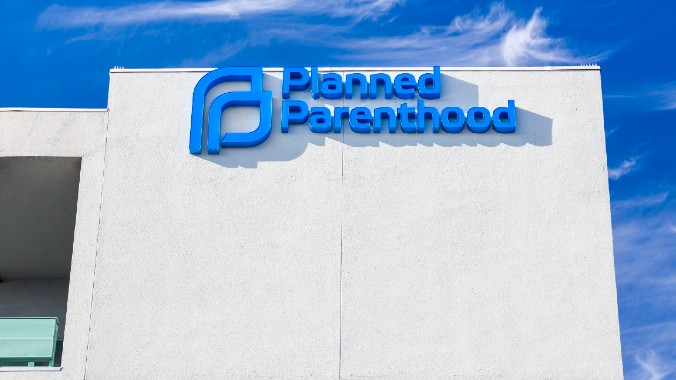Could You Be Targeted With Anti-Abortion Ads If You Go to a Planned Parenthood?
Sen. Ron Wyden alleges a data broker tracked people’s visits to 600 Planned Parenthood clinics in 48 states, then sold their data to an anti-abortion agency.
Photo: Shutterstock AbortionPolitics
In a new letter to the Federal Trade Commission and Securities and Exchange Commission, Sen. Ron Wyden (D-OR) said he and his staff learned the data broker Near Intelligence tracked people’s visits to all 600 Planned Parenthood health centers and clinics in 48 states and sold this data to the anti-abortion organization Veritas Society. (Planned Parenthood’s website states that its network includes 600 health centers in the U.S.) Veritas used this data to target Planned Parenthood visitors with one of the largest-scale anti-abortion ad campaigns in history. Wyden states that the Veritas ad blitz “ran from November 2019 through the summer of 2022, after the Supreme Court issued its decision in Dobbs v. Jackson Women’s Health Organization, permitting states to criminalize abortion.”
Data brokers have been able to collect location data and track people’s visits to reproductive health clinics for years—in fact, in 2015, one ad firm said that it had the ability to “tag all the smartphones entering and leaving” all the Planned Parenthoods in the country. Wyden’s letter confirms the breadth and scale of these data collection practices, at a time when there’s more at stake than ever.
Near claimed in February 2023 that it obtains data only with user consent. However, according to Wyden, Near’s former chief privacy officer Jay Angelo told his Senate staff that the company collected and sold this data without users’ permission. “In the October 18, 2023, call with my staff, Mr. Angelo revealed that while he had put a stop to the company’s sale of data about Europeans, which is subject to Europe’s strong privacy law, the company was still selling location data about Americans,” Wyden’s letter states. “[Angelo] also confirmed that the data it sold about Americans was obtained without consent, which is generally the case with data from advertising exchanges.”
-

-

-

-

-

-

-

-

-

-

-

-

-

-

-

-

-

-

-

-

-

-

-

-

-

-

-

-

-

-

-

-

-

-

-

-

-

-

-

-








































